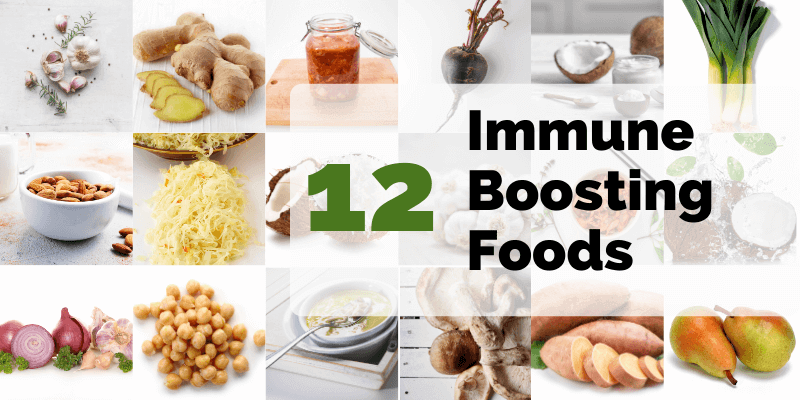We’ve seen an abundance of recommendations lately to help us stay healthy during this coronavirus outbreak — wear a mask, wash your hands, maintain social distancing…and the list goes on. And, these are all great precautions to help prevent our exposure to, and the spread of pathogens. But beyond these measures, practicing health-promoting behaviors can ensure your immune system is strong.
Health-promoting behavior is simply making lifestyle and dietary choices that help to maintain or enhance your health, prevent disease, and promote a healthy body (including your skin). When you eat healthy foods and get enough sleep and exercise – along with getting some much-needed self care – you’re practicing health-promoting behaviors – Congratulations! Because these behaviors have a strong influence on your overall health, longevity, and wellbeing.
If you’re looking for a sure-fire way to boost our immune system and improve your long term health, consider ways you can reduce the inflammation and stress on your body. Because inflammation and stress create an environment for an overactive immune system that becomes overworked and taxed. If your immune system is taxed – then its ability to respond optimally (if or when it comes into contact with pathogens) is compromised. So, it comes down to the lifestyle choices you make that create oxidative damage and then trigger your immune system to jump into high gear and cause inflammation and stress on your body – which ultimately leads to a compromised immune system, illness, and many chronic diseases.
Today, let’s focus on healthy eating and specifically some immune-boosting foods that you can incorporate into your diet. Because good nutrition can help you boost your immune system and is the key to staying healthy and disease-free. Your mom always told you to eat your fruits and vegetables, and she was right. But here are a few foods mom may not have told you about that will help to boost your immunity – naturally – and also ensure your body has what it needs to function optimally. Incorporating these foods into your diet will help you combat anything that may come your way – from a cold or the flu, to premature aging and disease.
1. Garlic, Onions, and Leeks
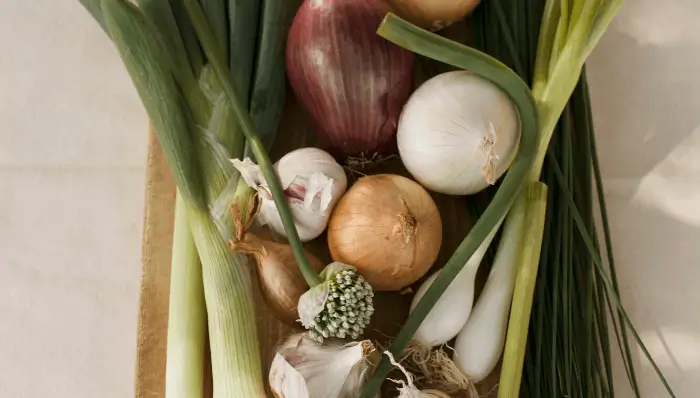
These are Prebiotic foods—they promote the growth of good bacteria in your gut—include dandelion greens, garlic, onions, leeks, and chicory. Onions, shallots, garlic, and leeks contain sulfur compounds that support detoxification pathways. The pungent aroma released from these vegetables when they are cut or crushed is from allicin, a sulfur compound that is known to reduce heart disease, prevent cancer, decrease blood pressure, prevent blood clots, boost the immune system, and has many anti-inflammatory, anti-microbial, and anti-aging properties.
2. Ginger
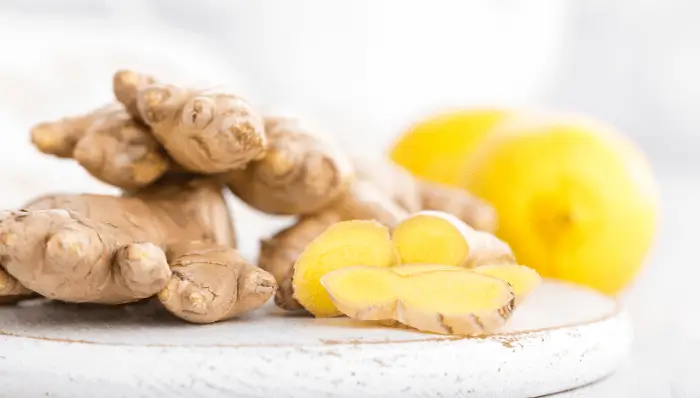
Is packed full of immune-boosting benefits – which is why it is a favorite “go-to” ingredient in many of my recipes. First off, ginger contains a host of health benefits. Ginger is antibacterial, which helps support the immune system, and it has powerful anti-inflammatory and anti-oxidative effects on the body to help reduce inflammation and stabilize blood sugar. It also helps alleviate nausea and soothes an upset stomach. Ginger used as a spice, in food, or as tea is a great addition to any diet!
3. Shiitake Mushrooms
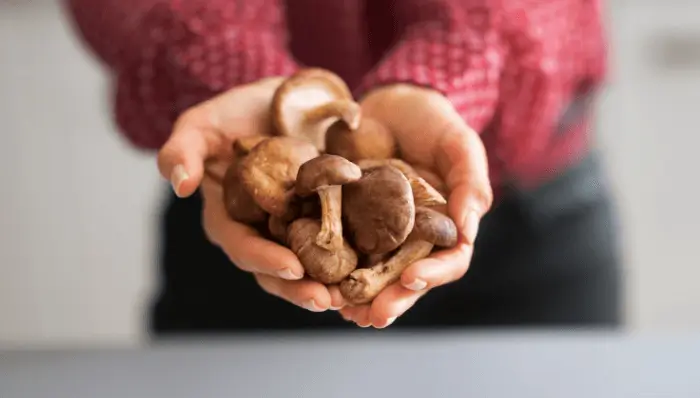
The high nutrient content in shiitake mushrooms, such as the 7 essential amino acids, B vitamins, vitamin D, selenium, and niacin – can aid in boosting immunity. Also, it’s worth mentioning that because shiitake mushrooms have an abundance of enzymes – they aid in better absorption of your food, because of their high content of vitamin D, selenium, and antioxidants. And L-ergothioneine found in shiitake mushrooms has been shown to prevent cell breakdown and protect your skin against UV damage, wrinkles, and discoloration caused by environmental damage.
4. Coconut
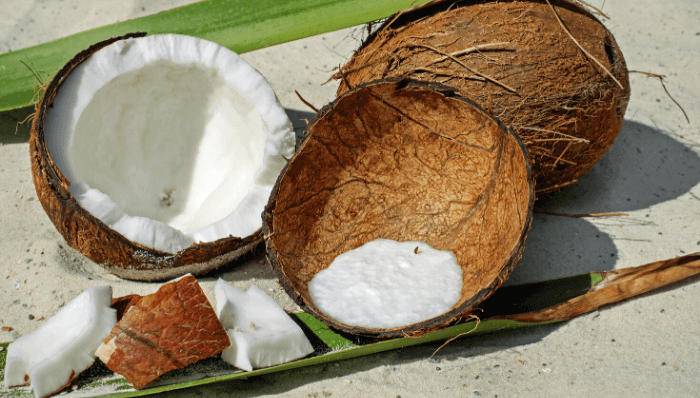
Enjoy the whole coconut! — there are benefits from everything including the water, milk, meat, and oil this precious plant produces. Coconut contains lauric acid, also found in human breast milk, which is full of immune-enhancing properties. You see – our bodies convert lauric acid to monolaurin, which has antimicrobial effects to help fight viruses, bacteria, and other infectious microorganisms. Coconut Oil is stable at high temperatures and is not susceptible to oxidative damage – so you don’t need to worry about it becoming a trans fat while cooking and losing the oil’s positive health benefits.
5. Sauerkraut
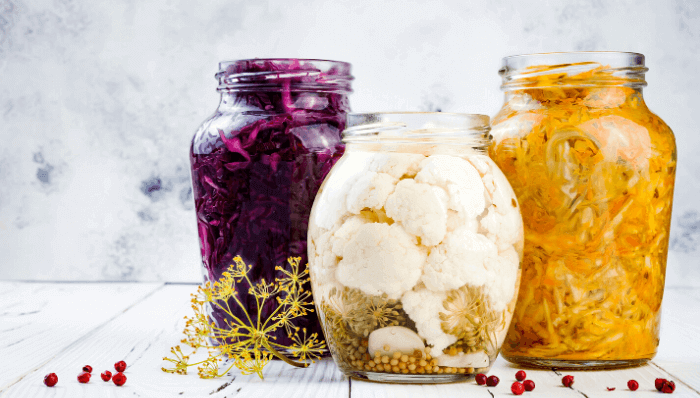
And other Fermented Veggies – such as kimchi and sauerkraut are full of probiotics – those beneficial bacteria – that enhance your digestion and gut microbiome. When your gut is healthy, you’re less likely to have internal inflammation. The healthy bacteria found in fermented foods have a boosting action on the immune system. You can make your own or buy fermented vegetables from your local health food store. Not ready for fermented veggies? You can also benefit from coconut yogurt, which is another fermented food without dairy.
6. Chickpeas
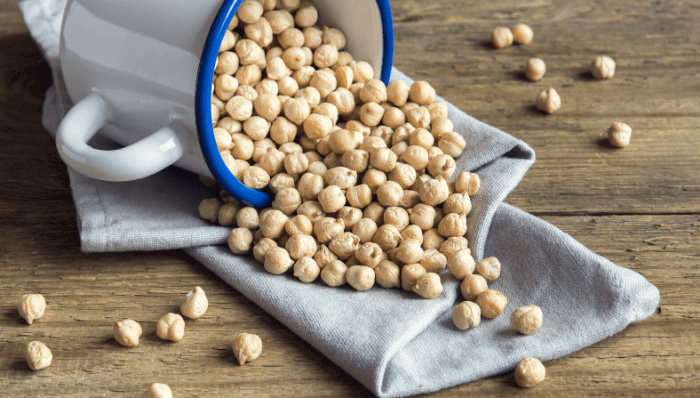
Whether you call them garbanzo beans or chickpeas, the health benefits are still amazing. Chickpeas are a great vegetarian source of zinc, which helps the immune system control and regulate immune responses. Roasted chickpeas are great as a quick great snack and a great source of fiber and protein. To Roast Chickpeas: Make sure the chickpeas are completely dry- then toss them in a light coat of oil – roast them at 400 degrees until crispy – stir every few minutes so they are evenly brown.
7. Almonds
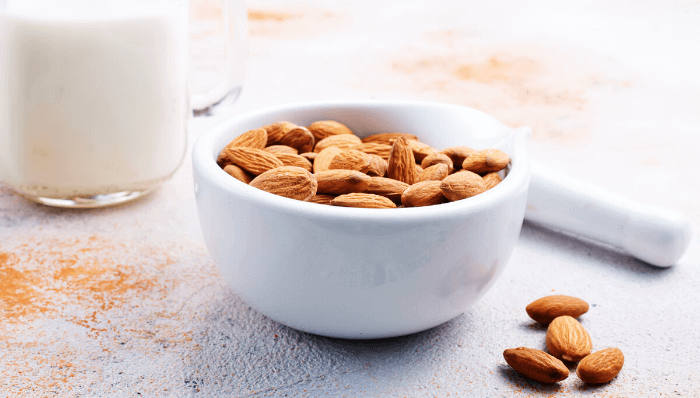
Almonds are not just a crunchy and convenient to-go snack – they’re packed full of nutrients that are immune boosting – and skin loving! The health benefits of almonds include, lowering blood sugar levels, reducing blood pressure, lowering cholesterol, reducing inflammation and (of course) boosting your immune system. The skins of almonds stimulate white blood cell production, which is your body’s first-responder to fight off pathogens. Next, they are high in vitamins and minerals, such as vitamin E, manganese, and zinc that help support the immune response.
8. Beets
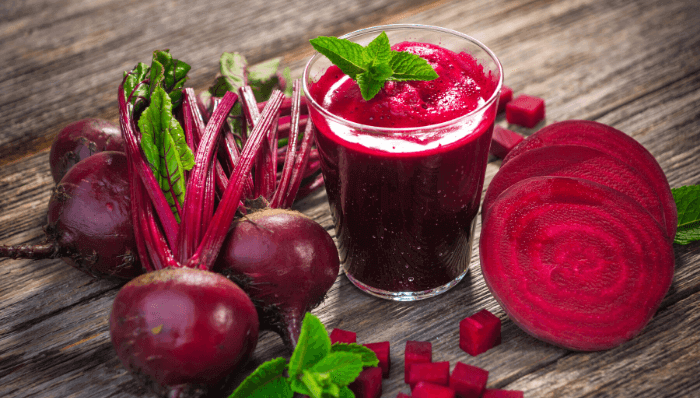
Eating more can boost your immune function and prevent chronic diseases. Beets will also boost your energy and lower your blood pressure. These red jewels are rich in vitamin C, minerals, fiber, and antioxidants – like betaine – which helps decrease inflammation and support detoxifying. The high vitamin C, folate, manganese, iron, and phytochemicals that support the immune system.
9. Sweet Potatoes and Yams
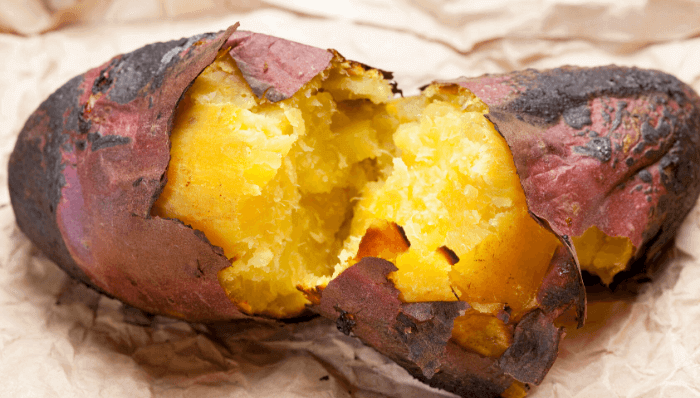
Are so much more than your average potato. Rich in Vitamin A, B6, and C, beta carotene, manganese, and sweet potatoes are a super vegetable that heals inflammation in the body. The list of benefits from eating sweet potatoes is long – from the powerful antioxidant properties of beta carotene to the immune-boosting vitamin A. The list of ways to eat this versatile vegetable is even longer — they taste great roasted in the oven, added to your favorite curry, pureed in a soup, in a burrito, on crostini, as baked wedges, or in a casserole.
10. Pears
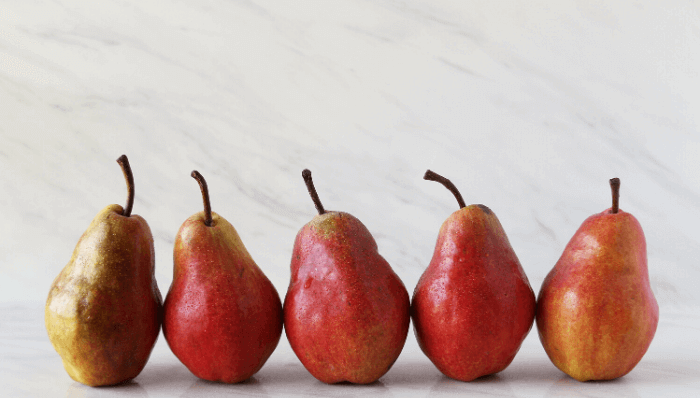
Are rich in antioxidants to help rid the body of free radical damage. They’re a rich source of fiber and important minerals, such as potassium and copper. Potassium aids muscle contractions and heart function, whereas copper supports a healthy immune system, nerve function, and aids cholesterol metabolism. Also, pears are an excellent source of polyphenol antioxidants – but be sure to eat the WHOLE pear – as the peel boasts up to six times more polyphenols than there are in the flesh.
11. Chicken soup
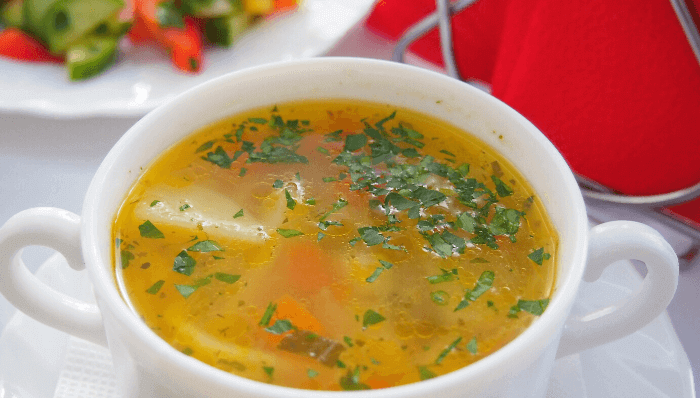
With homemade bone broth – How about some homemade bone broth? It is easy for your body to absorb and is packed with tons of vitamins and minerals to support boosting your immune system. There is still a lot to learn about the connection between the gut and the immune system, but one thing is for certain — Bone broth is a great source of amino acids – such as glutamine – to help heal and maintain gut integrity – so your gut doesn’t negatively impact your immune system. In other words, drinking bone broth supports a healthy gut with a diverse microbiome, which supports a healthy immune system.
12. Wild Alaskan Salmon
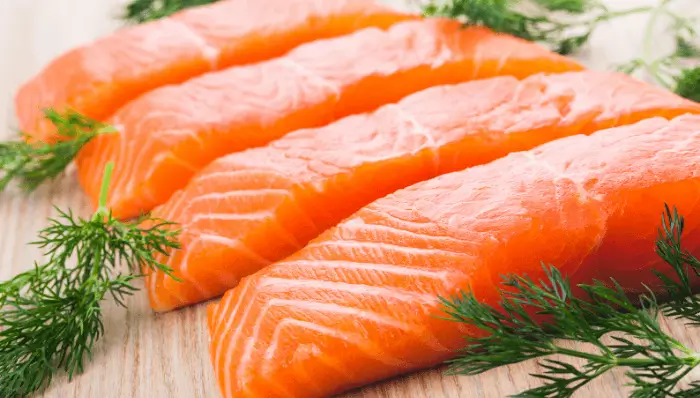
Is one of the best sources of the long-chain omega-3 fatty acids – EPA and DHA. These essential fatty acids help decrease inflammation and maintain healthy blood vessels, as well as lower blood pressure and your risk of cancer. It also contains astaxanthin, a powerful antioxidant. Salmon is also an excellent source of B vitamins. B vitamins are involved in several vital processes in your body – including repairing DNA, maintaining your nervous system, and reducing the inflammation. When possible choose wild-caught deep water salmon to reduce your exposure to inflammation-boosting environmental toxins and to get the benefits of enhanced nutrient levels. If you’re worried about exposure to environmental toxins or don’t like fish – The Spa Dr, Astaxanthin + Omega Krill is a great non-toxic source of omega-3 fatty acids and astaxanthin – in convenient capsule form.
Foods to Avoid
Eating good nutrition is important in reducing inflammation and boosting your immune system. But, since we’re focusing here on foods as a source to boost your immune system – I recommend you look for ways to reduce or avoid your intake of those foods that cause inflammation – such as sugar, caffeine, and alcohol. Sugar inhibits your white blood cells’ ability to fight off infections. Caffeine increases cortisol levels which lower immune function and cause inflammation, and excessive alcohol consumption can be very damaging to your immune system.
Instead, focus on eating a combination of some of the food I’ve recommended today, or other anti-inflammatory and immune-boosting foods that will provide your body optimal immune protection. If you’re looking for some great recipes that use the foods I suggested above and even more immune-boosting, skin-loving, and healthy foods options – check out my book Clean Skin From Within, which will help rid your body of inflammation and damage caused by environmental toxins, and oxidative damage.

